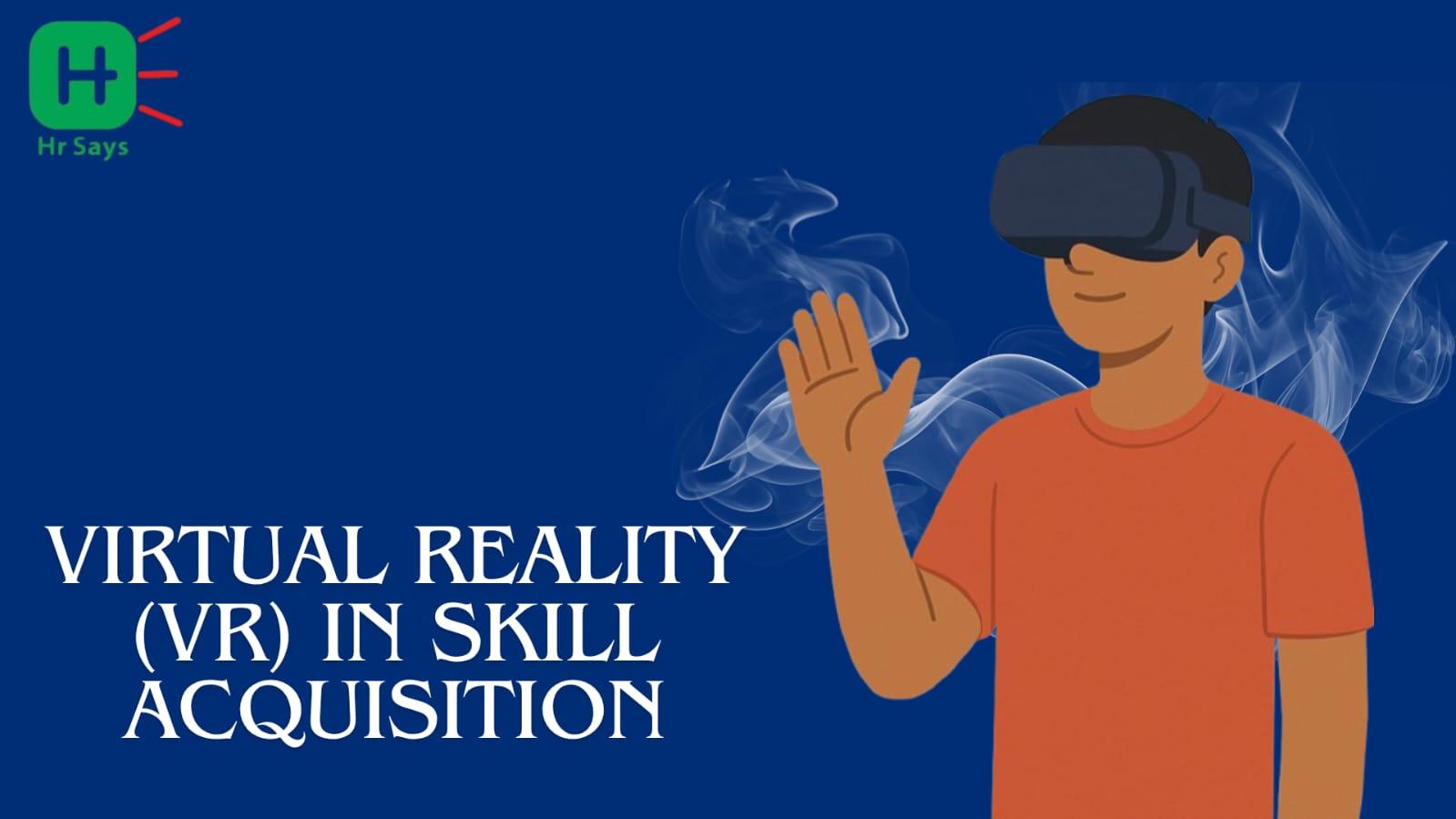Picture a young nurse in Jaipur, her hands trembling as she prepares to give her first injection. Instead of practicing on a patient, she puts on a VR headset. Now she is in a virtual clinic, guided by a holographic instructor. Her mistakes will not hurt anyone, but her confidence soars.
This is not sci fi. Across India, from IT hubs in Hyderabad to manufacturing plants in Pune, VR is revolutionizing how skills are taught. Forget dusty manuals or monotonous videos; immersive training lets employees live the experience. But does it really work ? Let us dive into how VR is turning learning into doing and why it is more than just a buzzword.
Flat screens not enough:
Traditional training methods struggle with complex skills. A factory worker watching a safety video might forget steps under real world pressure. A pilot in training cannot replay a thunderstorm landing from a textbook.
In India, where sectors like healthcare, aviation and manufacturing face acute skill shortages, the stakes are high. A 2023 NITI Aayog report revealed that 68% of Indian employers find entry level workers underprepared for practical tasks. VR bridges this gap by simulating real life scenarios; no risks, no resource waste, just relentless practice.
VR in action:
Healthcare heroes:
At AIIMS Delhi, medical students use VR to perform virtual surgeries. They feel the resistance of tissues, hear monitors beep and make split second decisions. Result ? A 45% drop in procedural errors during live operations, as per a 2024 study.
Factory floors:
Maruti Suzuki trains technicians via VR modules replicating assembly line glitches. Workers troubleshoot virtual engines, gaining muscle memory without halting production.
Soft skills:
Bengaluru’s hospitality chains use VR to simulate angry customer scenarios. Trainees practice tone, body language and problem solving skills no webinar can teach.
It is like riding a bicycle, explains Ravi Mehta, a Mumbai based VR trainer. You cannot learn balance by reading about it. VR lets you fall safely until you get it right.
Science behind screen:
Emotional engagement:
VR triggers the same brain regions as real life experiences. A virtual fire drill feels urgent, making lessons unforgettable.
Repetition without fatigue:
Pilots can crash land a plane 100 times in VR. Each failure teaches resilience, minus real world consequences.
Multisensory learning:
Unlike videos, VR engages sight, sound and even haptic feedback. For welding trainees in Coimbatore, feeling virtual heat sparks sharper focus.
Studies show VR trained employees master skills 4x faster and retain knowledge 75% longer. In a country racing to upskill 500 million workers by 2030, this efficiency is revolutionary.
Challenges:
Cost myths:
Many assume VR is only for MNCs. But startups like SmartVizX offer affordable solutions, a ₹15,000 headset can replace a ₹5 lakh machinery demo.
Tech resistance:
Older employees often distrust gadgets. Tata Steel tackled this by letting veterans design VR safety modules, turning skeptics into advocates.
Content gaps:
Most VR software is Western, notes Chennai ed tech founder Priya. We need local contexts like simulating monsoon proof construction sites, not snowstorms.
VR work India:
- Start with high risk sectors: Begin where mistakes cost lives healthcare, aviation, mining. Andhra Pradesh’s VR driven driver training reduced road deaths by 18% in 2023.
- Leverage regional stories: A Rajasthani VR module for farmers could simulate drought management using local crops and dialects.
- Collaborate: Pair VR with mentorship. After virtual sessions, have trainees discuss What surprised you ? with human coaches.
Human touch:
Critics argue VR could make learning impersonal. But in practice, it does the opposite. At Kochi’s Marine Engineering Institute, instructors use VR to show students engine rooms of ships they will never board physically. It sparks deeper questions, says professor Anil Nair. They are not just memorizing, they are curious.
Conclusion:
Imagine a India where electricians master wiring in virtual homes, nurses practice empathy with digital patients and engineers fix bridges before they are built. VR is not about escaping reality, it is about preparing for it, one immersive lesson at a time.
As Mumbai VR developer Arjun Kapoor puts it, skills are not just about knowing; they are about doing. With VR, we are giving India a playground to fail, learn and thrive. So, the next time you see someone in a headset, do not assume they are gaming. They might just be learning to save a life.

 VR triggers the same brain regions as real life experiences. A virtual fire drill feels urgent, making lessons unforgettable.
VR triggers the same brain regions as real life experiences. A virtual fire drill feels urgent, making lessons unforgettable.








.jpeg)
.jpeg)

.jpeg)





.jpeg)



.jpeg)

.jpeg)



